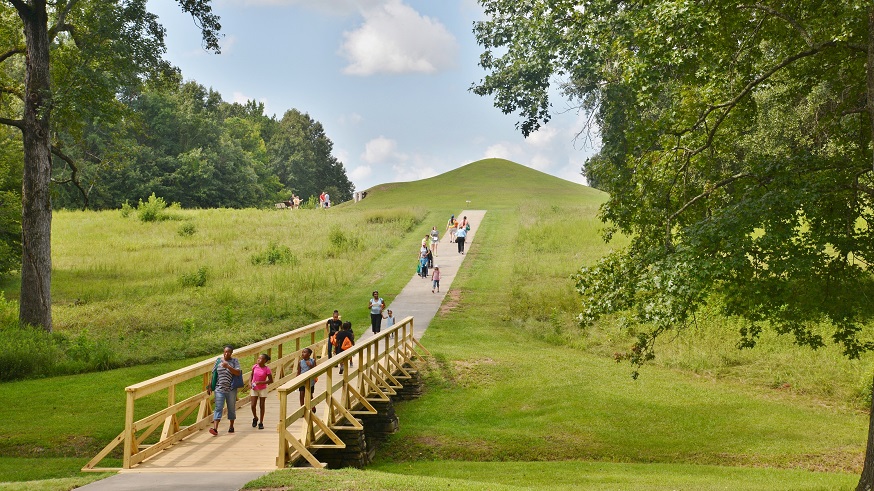News Release

NPS Photo
News Release Date: November 4, 2016
Contact: Angela Bates, 478-752-8257 x219
MACON, Ga. – In the heart of Georgia lies a place that has been settled for 17,000 years. Ocmulgee National Monument’s human history dates to the Paleo-Indian Period, and the area was occupied until the Muscogee (Creek) removal in 1826. Upon arrival at the Visitor Center, you will see over 2,000 artifacts on display, including a Clovis Point spear head dating to 10,000 BCE, earthen pottery made around 3,500 BCE, and European dishware from the 1700s CE.
Ocmulgee is home to the largest archeological dig in American history, with more than 3 million artifacts found by 800 Works Progress Administration (WPA) workers in the 1930s. Four different prehistoric cultures inhabited this area before European settlement in the late 1500s. One such group was the Mississippians, who constructed earth mounds for their elite members of society beginning around 900 CE. Their structures survive to this day, attracting visitors worldwide to the park. Read more
The National Park Getaways series helps people find new places to connect with nature, history, family, and friends. This month’s Getaway featuring Ocmulgee National Memorial is the 264th installment in the series.
About the National Park Service. More than 20,000 National Park Service employees care for America’s 413 national parks and work with communities across the nation to help preserve local history and create close-to-home recreational opportunities. Visit us at https://www.nps.gov, on Facebook www.facebook.com/nationalparkservice, Twitter www.twitter.com/natlparkservice, and YouTube www.youtube.com/nationalparkservice.
Last updated: December 6, 2016
